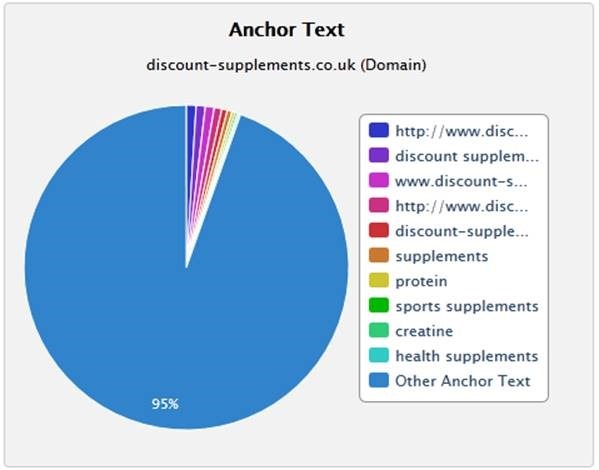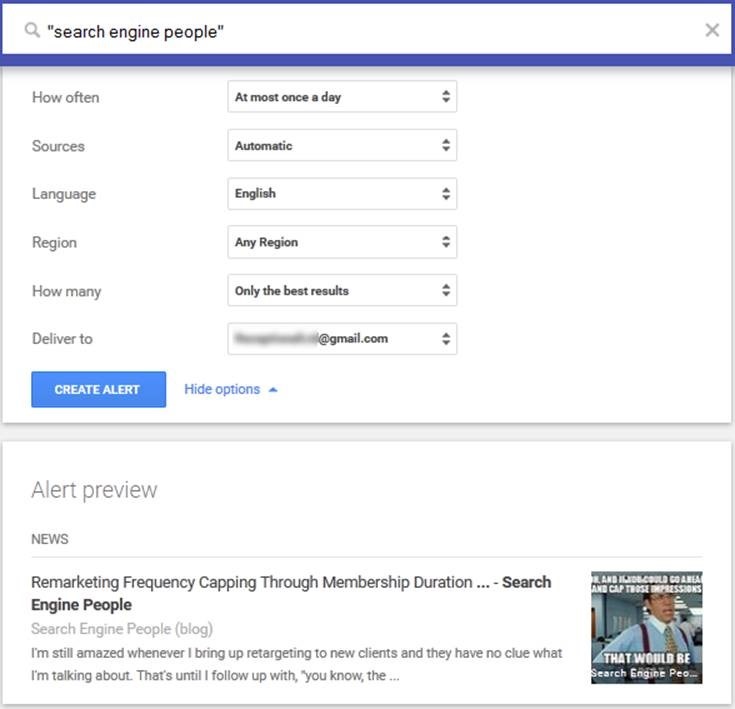
Whether you’re an affiliate, an in-house SEO, a consultant at an agency, or running your own business, there is much you can learn from your competitors.
Similar to athletes, entrepreneurs and successful businessmen, learning from the competition can be to your great advantage.
When analysing those competitors, I’m not talking about duplicating their ideas, but rather to work out what is working for them and how we can make it work for us.
Who Are Your Competitors?
When starting on a new account one of the first questions I ask my client is “who are your competitors?” This gives me an initial list to work from, as well as those who rank top for their key keywords.
In some cases, their competitors in business aren’t their competitors in search – they don’t rank for any of the search terms. Of course, if these competitors have done an excellent job with their branding I will keep them on my list to stalk.
Likewise, you may be competing in the search results that are not your actual competitors. Wikipedia pages and news results can be a good example of this for a number of terms. These are your competitors online.
To start, look at those keywords you want to rank for and/or are the ones that are currently sending conversions your way, that you don’t rank number one for (you can find some decent data from Google Search Console and AdWords data if you are running a paid campaign).
Then use those keywords to see which websites are ranking above you, or note down the top 10 results if you’re not already on page 1.”
How To Track Your Competitors
Now that you have compiled a list of who your clients are, the next step is to start tracking their marketing campaigns.
We’re focussing on their online efforts here, but some of their offline campaigns can be traceable when they make it into the news or on social.
Here are some tools (some free, some free trials, some paid) that you can use to keep a close eye on them:
This tool allows you to see what backlinks your competitors are building. It’s good to find historic newspaper mentions, big sites they have been mentioned on, where they are sending their products out for review etc. etc.
With some websites you can use this to find out what keywords they have been keen to rank for. The example below shows me that Discount Supplements have been keen to rank for protein and creatine:

If they are ranking well for these search terms, one thing the competitor may want to do is see where they are getting those links from.
Another tool I love, SEMRush gives me lots of keyword data as well as trying to work out who my clients are organically and for paid search.
I can grab a list of all the keywords my competitors are that they are ranking on the top two pages of Google for. If my client is unsure of the keywords they want to be targeting this is very useful to me.
You can receive free updates on your competitors’ activity at no cost by creating a Google Alert.
Simply enter their brand name, let Google know how frequent you’d like to receive email notifications (as it happens, once a day, or once a week) and wait for them to hit your inbox!
You don’t need to enter only your competitors as keywords here, you may also want to add keywords to help you keep up-to-date with the latest news and campaigns around your clients industry – helpful for spotting opportunities quickly.

- Social Media
There’s no harm in ‘Liking’ and ‘Following’ your competitors on Facebook, Twitter, Instagram and all the other social media accounts you find businesses on these days.
Following their bands will help you see what they are doing, what is working well for them socially and who they are interacting with etc. You can use this information to help create your own social campaigns.

- Email/Newsletter/Promotions
Signing up to your competitors’ email marketing campaigns will allow you to see the offers and promotional text they are using.
Become a ‘customer’ and see how they personalise your deals.
All of this is useful information when you’re planning or looking to alter your own mail campaigns.
- Monitor Their Website
Simply keeping an eye on their website can help you learn a lot about your competition. Perhaps they’re adding new functionalities from time to time, promoting certain products at specific times of the day, week, month or year.
Perhaps they have some weak points that you could turn into strengths for your own campaign? Or you like how they engage with their customers and potential customers alike.
What To Track
Here are some things to consider tracking your competitors for:
- They may have obtained exposure by publishing a great piece of content to a popular website.
- They may have gained newspaper exposure by way of a quote, fact, or statistic.
- They may be getting frequent mentions in a publication from the same journalist.
- They may be offering something unique, such as a tool, badge, competition or offer related to a specific website’s audience.
A lot of these scenarios can be replicated to catch up with the competitor and harnessed to further websites to create yourselves a bigger profile, gain more exposure and ultimately get ahead of keep ahead of the competition.
How To Get The Exposure
Aside from replicating what has already been done, you may want to change the angle on it. Unique is often better. Search Engine People is full of ideas to help you create the exposure you want to build your brands profile.
Here are some quick links to some of those resources:
- 5 Examples of Huge Branding Successes and How You Can Achieve Them Too (Rachel Sprung)
- 5 Tactics For Small Businesses To Get Traffic On A Small Budget (Barrie Smith)
- 8 Types of Blog Posts That Earn You More Traffic and Shares (Gary Dek)
- Get 200,000 More Monthly Visitors To Your Blog With These 20 Tactics (me again)
- How To Market A Brand Operating In An Unpopular Industry (John Rooney)
Get Stalking…
Those of you who already know your competitors can start adding and tracking them immediately (after sharing this blog post to your social accounts of course :P) to help increase your own marketing campaigns…
* Title image adapted from ocularinvasion
How To Use Your Competitors To Improve Your Marketing
The post How To Use Your Competitors To Improve Your Marketing appeared first on Search Engine People Blog.
(204)






